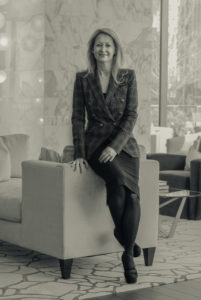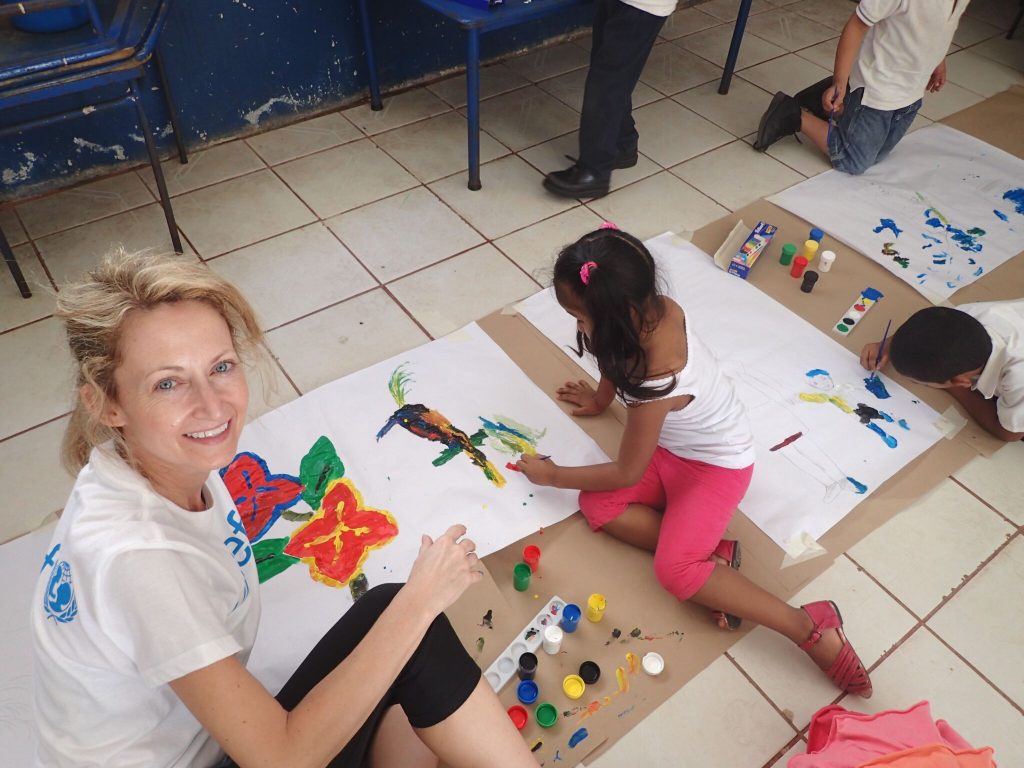Lynn McBee Fights Stereotypes, Brings CEO Skills and Community Drive to Dallas Mayor Race
The Other Side of a Candidate
BY Lisa Collins Shaddock // 04.29.19Lynn McBee (Photo by Misael Rodriquez)
It is a cold Monday night in early March, and Lynn McBee is sitting on a folding chair inside the African American Museum alongside six of the other eight candidates for mayor of Dallas. Having addressed crowds of all sizes as the figurehead or chairman of various community organizations and companies, the 50-year-0ld McBee is right in her element at civic gatherings, including one such as this: a mayoral-candidate forum hosted by The Dallas Examiner.
Even the Fair Park location is familiar territory: The African American Museum is less than half a mile from the Irma Lerma Rangel Young Women’s Leadership School, part of the Young Women’s Preparatory Network, for which McBee has been CEO for the last five years, earning a six-figure salary. But, tonight, rather than orating as a businesswoman, volunteer, board chair, or nonprofit representative, she is playing a new role. Lynn McBee, candidate for the city’s highest public office.
McBee has been campaigning for several months since making the decision to run for office in late 2018. Still, the political world, with all of its nuances, challenges and complexities, is admittedly foreign to her. During the beginning of the forum, candidates are given two minutes for opening remarks. McBee delivers an earnest, straightforward introduction, in contrast with the polished, almost theatrical monologues given by her fellow candidates — many of them experienced or career politicians.
McBee has commanded boardrooms and raised millions of dollars to fund community projects. But perhaps the most important experience that will serve her as she develops her voice in politics is her ability to successfully merge private and public-sector interests in order to be most impactful in solving community issues. McBee has had to navigate the pitfalls and the advantages working in both the private and public arenas, when tackling civic initiatives such as helping build the Dallas Arts District; managing a hybrid private-public school network; or serving as a chairman of The Bridge, a private-public coalition against homelessness.
But despite her lengthy list of volunteer work in the community and her name-recognition in certain social circles, when it comes to the mayoral race McBee is, to many, an unknown — and, to some, she is an outsider.
“I suppose every candidate has a perception and a reality,” McBee says to me a little more than a week before the forum. We’ve met for an early morning coffee at Yolk in One Arts Plaza before she embarks on another packed day of meetings. She orders a Diet Coke (her first of many throughout the day), but this morning will settle for Pepsi — it’s all they have.
On the campaign trail, image and perception have been some of her greatest challenges.
“I think the biggest misconception has been: ‘I don’t know how in touch she is with issues because she looks a certain way.’ I hate to say it, but it is. ‘She looks a certain way and she’s had this kind of life. How in touch can she be?’” she says. Then, without pause, she deadpans: “I’m in touch.”
It is understandable why some voters would question McBee’s ability to be entrenched in the issues facing Dallas citizens. Until August 2018, she and her oil-and-gas executive husband, Allan McBee, resided in a Highland Park home, which at press time was on the market for $3.9 million. They have since moved into a high-rise in Dallas proper, near Klyde Warren Park.
Mayoral candidates must be Dallas residents for at least six months to be eligible to run; they cannot be residents of tony Highland Park or University Park. Citizens of these towns vote for their own mayors and therefore do not vote for Dallas mayor. Lynn and Allan are staples on the society and philanthropic scenes, with their photographs frequently published in magazines, including PaperCity. McBee is also regularly referred to as a philanthropist — a word often casually used to describe a wealthy person who donates money to a cause or a nonprofit, regardless of their level of understanding or involvement.
Press Coverage and Philanthropy
Since announcing her run, McBee has thus faced her fair share of stereotyped criticism in the media. In the press coverage surrounding the election, McBee is most often labeled first as a philanthropist — not a CEO, executive or a former research scientist, all of which she lists on her CV.
In an online opinion piece published by the Dallas Observer titled “Early Take on Mayor’s Race: Two Real Contenders, Lotta Stooges,” long-time city columnist Jim Schutze referred to McBee as a “wealthy volunteer” and a “socialite fundraiser.” His article continued, referring to McBee and fellow candidate Regina Montoya: “Both people are smart and have devoted good portions of their lives to helping the poor… but they live on Planet Elsewhere. They’re not real candidates for mayor of Dallas.”
McBee waited several days before formally responding to the article on her official Facebook account: “When Mike Rawlings ran for Mayor, he was Park Board Chair, former chair of The Bridge and former CEO of Pizza Hut, yet I never heard anyone refer to him as a ‘wealthy volunteer.’ I’m a current CEO, a former biotech exec, former scientist and current board chair — and my fellow candidate, Regina Montoya is a former General Counsel and former White House staff member, yet The Observer chose to label us the ‘wealthy volunteer’ candidates.
“Words matter. How we talk about each other matters. We should be lifting and supporting women who seek to break down barriers. I’m disappointed The Observer would choose to do otherwise, but conversely, I’m so proud that for the first time in history, Dallas has three strong, successful women and candidates for Mayor. Onward!”
While the term philanthropist isn’t an adequate description of McBee, it’s certainly not incorrect. According to McBee’s campaign website, she has personally logged more than 45,000 hours of service for area nonprofits. That is the equivalent of working a full-time job for nearly 22 years (without a single vacation).
“It’s been the greater part of my days every day,” she says of her voluntary civic work over the 25 years she has lived in Dallas.
McBee graduated from the University of Texas at Austin with a degree in biochemistry and is a long-time employee of New England Biolabs — now the world’s leader in genomic research. As such, she has a methodical approach to solving problems. This has translated into her unique campaign style: Hers is a natural and direct demeanor.
When asked questions, privately or publicly, rarely will McBee mention past accomplishments or experience. Unlike a career politician, her responses are step-by-step solution oriented. There is little contrived political-speak or rehearsed self-promotion.
This logic-over-theatrics approach seems rooted in McBee’s science background.
“It’s just the way I’m wired. When I was eight years old, I was asking a million questions, out doing science experiments, collecting bugs… My mind has always been curious,” says McBee, who seems to view every solution to a challenge — including those facing the city of Dallas — as a series of steps that can be taken, as long one does the proper research and assembles the right team. To her, the office of mayor is not an idealistic platform but a very specific job to be done — one that, when broken down, is simply anchored on agenda-setting, meeting-running, and decision-making.
Despite her natural tendencies to take a granular, methodical approach, McBee is also a big-thinker; some may even call her a dreamer — albeit a very calculated one. Take, for example, the AT&T Performing Arts Center and the Margaret Hunt Hill Bridge, both of which didn’t exist a decade ago.
These are but two major civic endeavors that McBee helped spearhead, from an organizational and fundraising standpoint as part of the President’s Advisory Council for the former, and chair of the opening weekend celebration for the latter. Today, both are lofty visions that have come to life and helped to reshape once neglected parts of Dallas.
Having achieved such monumental feats is perhaps why McBee’s focus can often seem aimed toward the big-picture, even visionary. During the candidate forum, which consisted of a diverse group of people from all races, genders, ages, and socioeconomic backgrounds, audience members were the ones asking the questions. When discussing her opinion on universal Pre-K (she is for it), McBee takes the notion a step further, by stressing the scientifically proven importance of childhood education from ages zero to three.
Asked about raising the current minimum wage, McBee shifts the focus and cites the students at Irma Lerma Rangel Young Women’s Leadership School. These students aren’t focused on the minimum wage, she says, as many are too busy deciding where to attend medical school. Similarly, she says, students in the Dallas County Community College district, for which she has actively served on the board for more than 10 years, are earning $150,000 a year for desperately needed trade and vocational jobs.
Why focus on minimum wage, she implies, when the focus could be on educating students in a way that prepares them for higher-paying jobs.
Forum moderator Demetria McCain, president of The Inclusive Communities Project, announces that there is time for a few final questions. A girl in a Rangel uniform eagerly stands up and is given the floor. She is 17 years old — not even eligible to vote — and is here on a school night. “Will you stand with Dreamers in working to protect our rights?” she asks, referring to the movement of primarily undocumented students and youth seeking to tackle issues related to education, immigration, and citizenship. To that, McBee empathetically replies “Yes.”
Do her answers demonstrate a disconnect with the day-to-day issues facing the Dallas community? Perhaps. Or is it that McBee’s combination of big-picture thinking and pragmatic practicality allows her to see the path forward and even envision an idyllic result.
With days to go before the May 4 election, it’s hard to ignore the parallels between McBee and another notable so-called philanthropist — Annette Strauss, the first woman elected mayor of Dallas, whose leadership for two terms in office (from 1987-1991) saw the city through pivotal years of social and economic progress.
While McBee is often compared to Strauss, even before having made the decision to run for mayor, she says she most often reminds people of the late Ruth Altshuler — something she takes as the highest compliment. Altshuler, a powerhouse fundraiser and beloved community leader who died just over a year ago at the age of 93, was a long-time friend and mentor to McBee.
Suddenly curious, I ask: Would Ruth have wanted to be mayor? “She did,” McBee says, recalling that, at one point, Altshuler had seriously considered running. “And, you know what? I’m glad she didn’t do it. With her life of giving back and service, she was such a role model for all of us…
“While she would have been an awesome mayor, we should be happy she didn’t do it, because she made a lot of change in other ways — in the private space. She was an amazing woman.”
Coming from a mayoral candidate, and one that has been able to move the needle leading the private components of various public-private partnerships, these sentiments certainly beg the question: Where can a dynamic community leader like McBee really be most effective — and, ultimately, can private-sector success, no matter how vast, translate into impactful political leadership.




























_md.jpeg)
